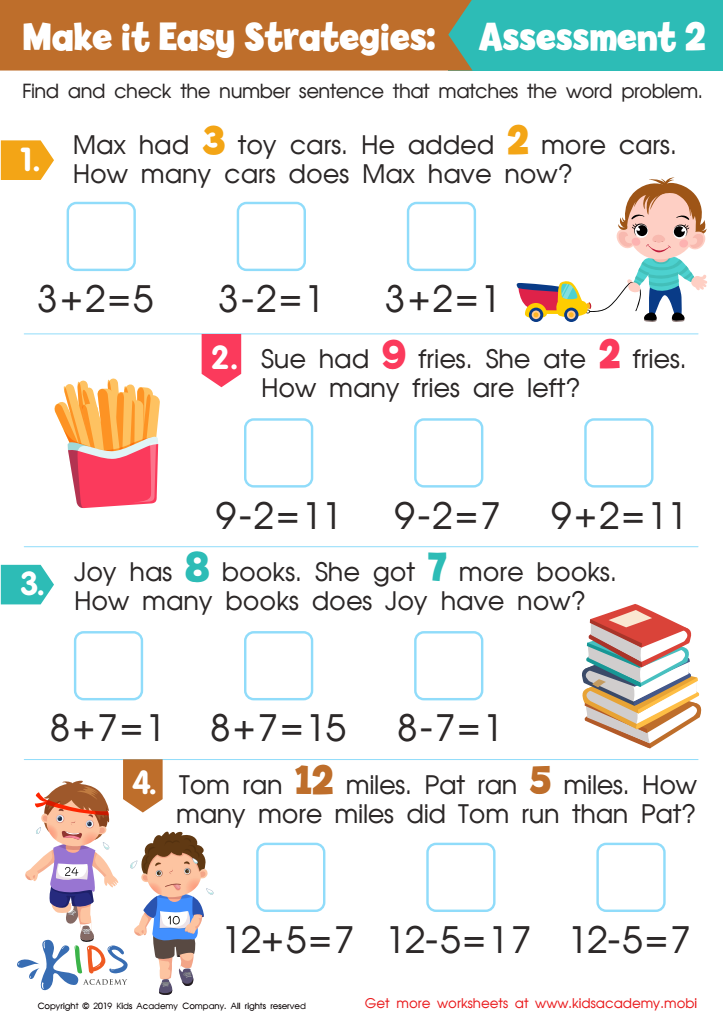Arithmetic strategies understanding Worksheets for Kids
1 filtered results
-
From - To


Make it Easy Strategies: Assessment 2 Worksheet
Question/Answer
How does the mastery of the Arithmetic strategies understanding skill affect a student's performance at an early age?
Mastery of Arithmetic strategies understanding at an early age significantly enhances a student's mathematical performance. It fosters a deep comprehension of number concepts, improves problem-solving skills, and builds a strong foundation for advanced mathematical learning. Early mastery leads to increased confidence, quicker mental calculations, and better academic outcomes in mathematics and related subjects.
Why is the Arithmetic strategies understanding skill important for Grade 1 students?
Understanding arithmetic strategies in Grade 1 is crucial because it lays the foundation for mathematical literacy. It helps students develop problem-solving skills, understand number relationships, and build a strong base for future math concepts.
What are some effective activities to train students’ Arithmetic strategies understanding skill when teaching them about Addition & Subtraction?
Effective activities for teaching addition and subtraction strategies include using manipulatives (e.g., counters, number lines) to visualize concepts, playing math games that require strategic thinking, solving word problems that apply real-life contexts, conducting math talks to encourage reasoning and explanation of strategies, and incorporating technology (e.g., educational apps) to engage and reinforce learning through interactive practice.
 Assign to the classroom
Assign to the classroom




.jpg)






